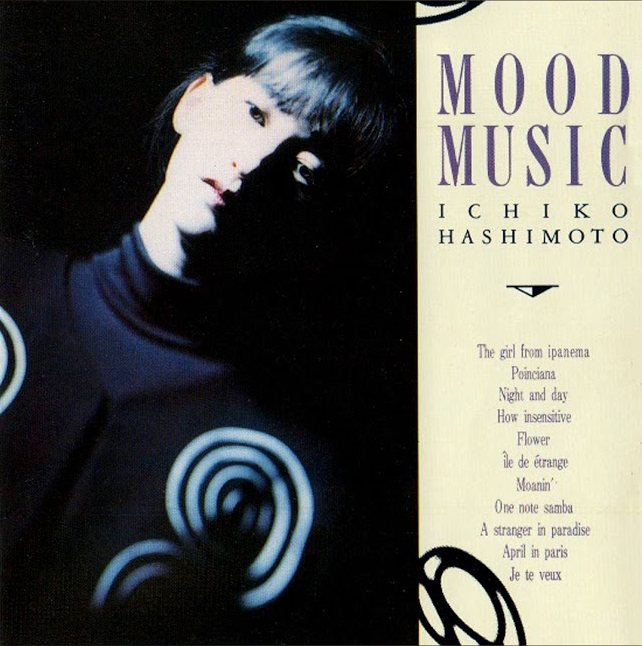
Odd that this is my first Ichiko Hashimoto post, given how much I admire her work–though her catalogue covers so much ground that it’s hard to know quite where to start. A trained jazz pianist, composer, and singer, Hashimoto was one half of Colored Music (friendly reminder that this record is so great), made a slew of ambitious solo records, performed with YMO, collaborated with Belladonna of Sadness composer Masahiko Sato, and scored an anime series, all while establishing herself as an powerful and singular composer, arranger, and producer. Though she’s worked across many genres, she’s maintained a signature proclivity towards gently sinister and avant-garde arrangements, and lugubriouis, pillowy vocals (her love of chanson-style singing pops up all over her discography, not just here).
Mood Music might not be her most canonical record, but it’s a personal favorite and has been on repeat recently. Comprised mostly of jazz standards, the record cribs heavily from bossa nova, samba, and exotica, but Hashimoto quietly subverts these textures into something darker, and at times, less familiar. Her quavering, syrupy-swoony orchestration suggests a Scott Walker-esque approach to sentimentality, particularly on thick and headier arrangements like “Poinciana” and “Night and Day.” The record’s two original compositions, “Flower” and “Île De Étrange,” are its most interesting, with the former a white-knuckled, percussionless tower of taut-string urgency, and the latter a hypnagogic, dubby piece of acid jazz. Mood music indeed.

